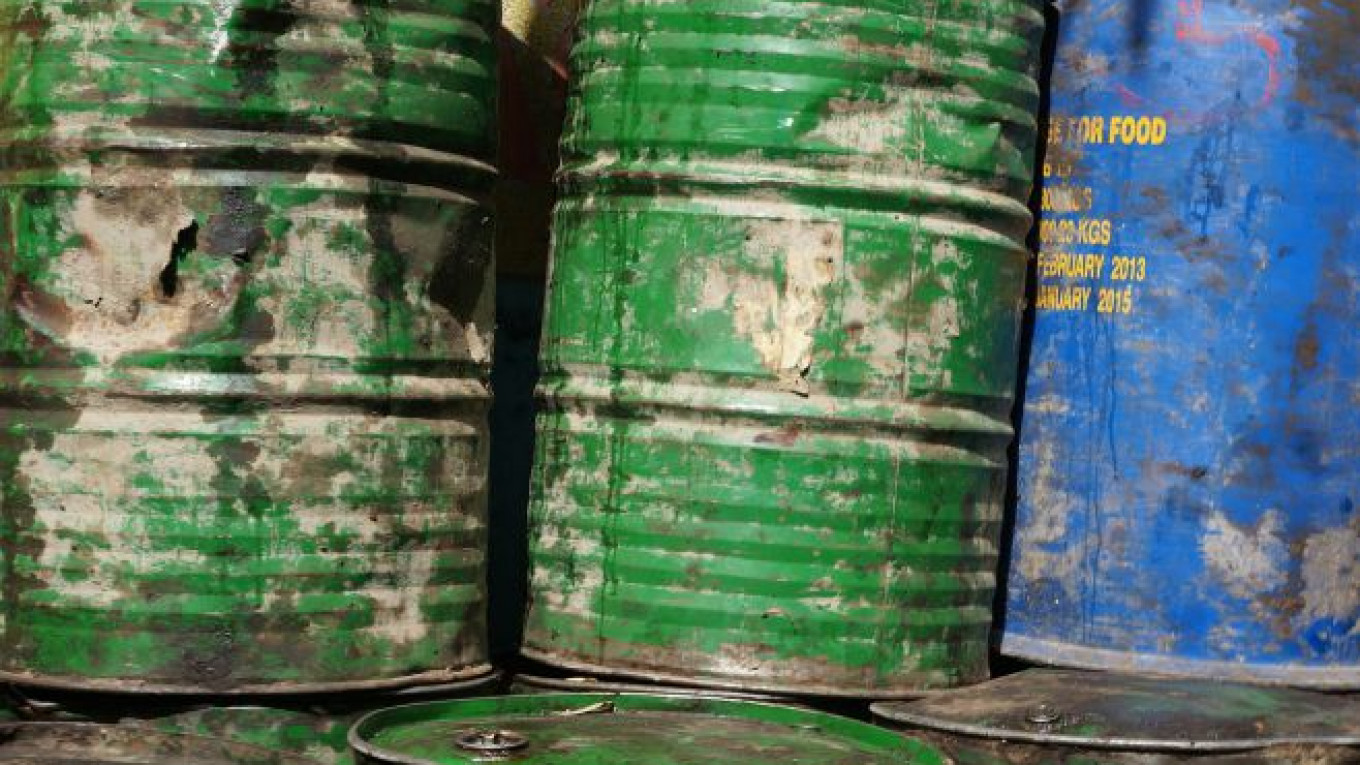Plans by India's ONGC Videsh to drill for shale oil in Siberia could be delayed as sanctions against Moscow make it more difficult to work with U.S. firms to retrieve the hard-to-reach commodity in Russia, its managing director said.
As part of sanctions over conflict in Ukraine, the United States in September banned its firms from supporting exploration and production activities in deep water, Arctic offshore and shale projects in Russia.
That could affect ONGC Videsh, the overseas investment arm of top Indian oil explorer Oil and Natural Gas Corp, which has contracted Denver-based Liberty Resources to drill four wells by December in the Bazhenov shale formation in Siberia. Only one well has been drilled so far.
"Liberty Resources is seeking a U.S. export licence or permission to continue with the project. If it doesn't get that then there could be a delay in Bazhenov shale exploration," ONGC Videsh managing director N.K. Verma said Tuesday.
ONGC hopes Liberty will get the green light from U.S authorities as the deal between the two companies was signed last year before sanctions kicked in. Liberty did not immediately respond to an emailed request for comment outside usual office hours.
ONGC Videsh in 2008 bought London-listed Imperial Energy when oil prices were around $130 a barrel, about $50 higher than current levels. It had hoped that output at Imperial's assets in western Siberia's Tomsk region would reach 80,000 barrel per day (bpd) by 2011, but complex geology stymied that plan.
Now it is banking on shale technology to boost output. Imperial's current production is 6,000-7,000 bpd, with Verma saying that could rise to 20,000-30,000 bpd with shale oil drilling.
He said the company had so far invested $350 million in exploring and developing the assets.
Shale oil reserves are typically complex and expensive to reach, with U.S. expertise in demand after a shale boom in the country.
An estimated 75 billion barrels of technically recoverable shale oil resources may lie in the huge Bazhenov formation, according to the U.S. Energy Information Administration, more than in the United States.
Although Verma said the sanctions had not had any immediate impact, he said ONGC Videsh was also looking out for alternative solutions for drilling in Bazhenov.
The comments come after Interfax reported last month that oil major Shell had suspended shale development in the Bazhenov formation with Gazprom Neft.
ONGC Videsh also has a 20 percent stake in the Sakhalin 1 project in Russia and is in talks with Rosneft over a stake in two east Siberian oil fields.
Fueling India's Economy
India, the world's fourth biggest oil consumer, has charged state-firms to acquire assets overseas to fuel the country's economy. It imports about 80 percent of its crude needs.
ONGC Videsh aims to get 400,000 bpd of crude from its assets overseas by 2018 and is looking to source oil from stable countries, Verma said. It churned out about 167,000 bpd abroad in the fiscal year to March 2014.
"We have got portfolio in countries that are rich in resources but are facing geopolitical challenges ... Now we want to balance and expand our portfolio by acquiring assets in stable geographies."
Social and political upheaval in the Middle East and parts of Africa has raised the risk of operating in may hydrocarbon-rich countries, impacting ONGC Videsh's overall output in the last fiscal year.
ONGC Videsh has 13 producing assets spread across Russia, Azerbaijan, Syria, Sudan, South Sudan, Vietnam, Myanmar, Colombia, Venezuela and Brazil.
The company recently signed an initial agreement for cooperation in hydrocarbons with Mexico's Pemex. It has also acquired an interest in gas fields in Mozambique.
A Message from The Moscow Times:
Dear readers,
We are facing unprecedented challenges. Russia's Prosecutor General's Office has designated The Moscow Times as an "undesirable" organization, criminalizing our work and putting our staff at risk of prosecution. This follows our earlier unjust labeling as a "foreign agent."
These actions are direct attempts to silence independent journalism in Russia. The authorities claim our work "discredits the decisions of the Russian leadership." We see things differently: we strive to provide accurate, unbiased reporting on Russia.
We, the journalists of The Moscow Times, refuse to be silenced. But to continue our work, we need your help.
Your support, no matter how small, makes a world of difference. If you can, please support us monthly starting from just $2. It's quick to set up, and every contribution makes a significant impact.
By supporting The Moscow Times, you're defending open, independent journalism in the face of repression. Thank you for standing with us.
Remind me later.






